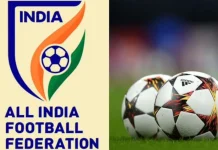The clock is ticking towards the 2026 FIFA Men World Cup and although the whole world awaits the biggest World Cup ever in history, so does the criticism. The competition, which will be held in the United States, Canada and Mexico, will have an estimated number of fans of over 6.5 million. But the increasing number of voices raising complaints about transgressions of human rights- especially in the United States- is rendering uncomfortable lapses between the rhetoric of FIFA and the actual ground reality.
In 2018, when the North American bid was offered to host the world cup, the language used attested to compliance with international human rights standards. The obligations mentioned by FIFA covered freedom of speech, protection against discrimination, gender equity, and labor rights. However, as the year 2025 progresses, civil society institutions, human rights activists, and fan clubs are issuing questions whether the words of FIFA have weight, or the tournament is being clouded by exclusionary measures and political repression.
Discriminatory Immigration Policies and Their Impact
Travel Bans and Visa Denials
This is because the immigration policies of the United States could become one of the greatest threats against the rights commitments of FIFA. Despite temporary executive orders that have spared some national teams to some of the bans, this refuge is highly limited because it does not take in families, journalists, supporters of their team, and supportive personnel of the affected countries. People of countries that are targeted by the restrictive immigration policy are still under the threat to be denied, detained, or charged with slower entry.
Minky Worden of Human Rights Watch challenged FIFA to not only admit these obstacles publicly, but to better advocate with the U.S. authorities to rectify the situation through equal treatment. She cautioned,
“Without firm guarantees, discriminatory policies will overshadow the tournament’s inclusive message.”
Immigration Enforcement in Host Cities
In large host cities, including Houston, Atlanta, Los Angeles, and others, there is worry over enhanced immigration enforcement. There are documented cases of targeted arrests, lack of due process during detains and violent raids in immigrant communities. The developments do not only pose logistical difficulties, but they also pose moral and reputational threats to FIFA.
A world cup which turns away or threatens visitors due to nationality, immigration status, political affinity is in direct contrast with its brand image as a source of people unity. The risk of alienation may render the whole fan communities to feel unwanted, and this is against the inclusive idea of which global football wishes to present.
Freedom of Expression and the Right to Protest
Escalating Crackdowns on Dissent
The World Cup of 2026 is not just a sporting event, it is a huge global stage. Yet in the west, specifically in the United States, the right of free expression and peace is becoming hard to come by, especially when it comes to pro-Palestinian protests, as well as in regards to anti-immigration demonstrations.
Cities such as Los Angeles have used National Guard armies in suppressing civil unrest in the name of public safety. Activists say that these forms of measure are deemed militarization and can discourage legal assembly. According to them, silencing dissent does not gel with the freedom of expression of FIFA.
Fears Among Supporters and Advocacy Groups
Fan groups headed by Football Supporters Europe have raised the issue of discriminatory policing, racial profiling, and reprisal against politically voice supporters. They are demanding that FIFA should consider setting safe areas as well as legal immunity to protesting groups.
Increased surveillance, visa revocations, and inconsistent policing have all been cited as risks that could compromise fans’ ability to participate freely. Of concern to many is whether FIFA will be upholding the said principles when it matters the most.
Labor Rights and Oversight Failures
Worker Protections During the Tournament
Although the United States has found a way around the labor scandal observed in the course of Qatar 2022 because of limited stadium building, it continues to oversee labor rights. Tens of thousands of temporary workers (many of them unauthorized or likely to be exploited) are being hired in the hospitality, security, and transport area.
Wage theft, inappropriate conditions, and the absence of independent grievance mechanisms have drawn a red flag by advocacy groups like the Center of Migrant Rights. Although the event is huge, it lacks the main database where the violation of labor can be traced as well as the complaints of the workers- this part refutes the accountability of FIFA.
Transparency and Anti-Corruption Challenges
World Cup planning has also been warned about governance flaws, such as lack of transparency with regards to budgetary allocations and lack of oversight. Host cities, which include those slated to host Super Bowl LIV and the NFL docket are being funded by the federal and local governments to the tune of billions of dollars, but with no clear-cut anti-corruption blocks, there is always a suspicion that the finances are misused, and there may be elements of favours given in contracts.
Faith in FIFA has been weak and unless FIFA decides to take action on its governance and audit processes, the 2026 World cup might suffer the failures of the earlier mega-events.
FIFA’s Commitments and Public Accountability
FIFA has said it is preparing to actively cooperate with the host governments to ensure that all the World Cup participants have their access and rights guaranteed. But critics say that these claims are very vague and have no measurable standards.
The formulation of the human rights policy by the organization states the responsibilities towards compliance with internationally recognized norms but the question is all about the practical application. There are no displayable signs or benchmarking systems to check on the progress of FIFA policies hence the risk of having the policies viewed as a means of attracting publicity where it is not a binding code.
Expert Perspective on FIFA’s Human Rights Pressure
Sky Lee has spoken on the topic in an interview with [news channel name], drawing attention to the disconnect between FIFA’s stated values and the reality many attendees and workers may face in the U.S. Lee emphasized that
“FIFA’s credibility depends on what it does, not just what it says. If they cannot guarantee rights in the world’s most watched event, their global standards fall apart.”
People are not going to attend the World Cup after DHS announced they will be there suited and booted ready to provide security at the games.
This is a dry run for the Olympics nobody will come to America to be met by DHS agents. https://t.co/zCJtG3dVkB
— Skyleigh Uhrich (@Sky_Lee_1) June 18, 2025
Lee also warned that a failure to address these issues head-on could damage not only FIFA’s legacy but the reputation of the sport itself as a platform for equity and global unity.
The Stakes for the Future of Football
The 2026 FIFA World Cup is not just a match. It is a test of whether the world’s most powerful sporting body can uphold human dignity while operating in politically and socially complex environments. Otherwise, FIFA that remains silent against the treading on the rights and becomes blind to the civil liberties infringement will end up undermining the concept of inclusiveness that makes this event a global product.
Executive Director of the Sport & Rights Alliance, Andrea Florence, warned that a tournament held with exclusionary conditions,
“Will not unite the world—it will expose its fractures.”
To prevent this outcome, FIFA must go beyond rhetorical affirmations. It must actively enforce entry protections, guarantee protest rights, investigate labor practices, and demand transparency in every host city. Anything less is complicity.
A Final Reflection: Unity or Division?
The time to act is right now, with less than a year left to kickoff time. The World Cup of the year 2026 promises to either confirm the special ability of football to unify people or to reveal the fragility of football to politics and abuse of promises.
The big question that FIFA needs to answer is whether the organization believes in the human rights regulations it has been harping on or whether the fear and inequality atmosphere can take over the biggest event in the sporting world. The way FIFA decides to move, or not to, will determine not only the event, but future moral rights of international sport.












